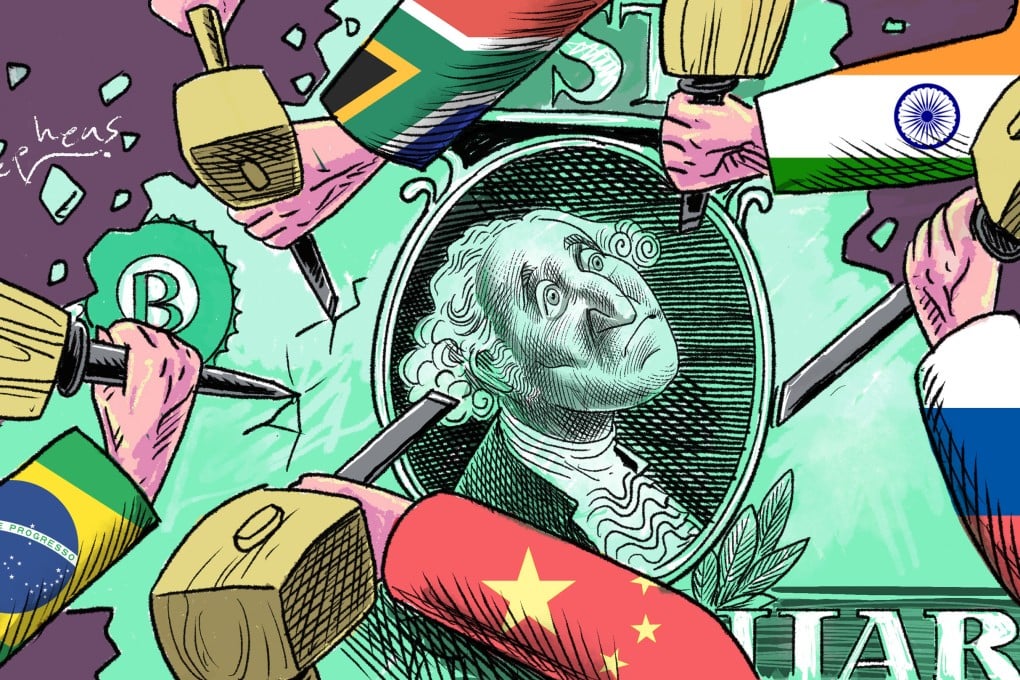Opinion | Brics has a better way to de-dollarise than creating a single currency
- Despite hopeful talk of a Brics currency, the time is not yet ripe for such a move
- It is more feasible for each state to launch a central bank digital currency and work towards interoperability. Here Hong Kong is in a key position to leverage its expertise

De-dollarisation is the process of reducing reliance on the dollar as a reserve currency, a medium of exchange or a unit of account in the global economy. Aside from the enormous implications this has for global financial markets and international trade, given the dominance of the United States in the global economic system, it also has important political implications.
Some countries seek to de-dollarise to diversify their central bank reserves – that is, by reducing their reliance on the dollar, they could in theory manage more efficiently their currency risks and maintain greater control over their monetary policy. Yet others may have political motivations; for instance, by diminishing the dollar’s influence on their economies, they can reduce their dependence on US policies.
